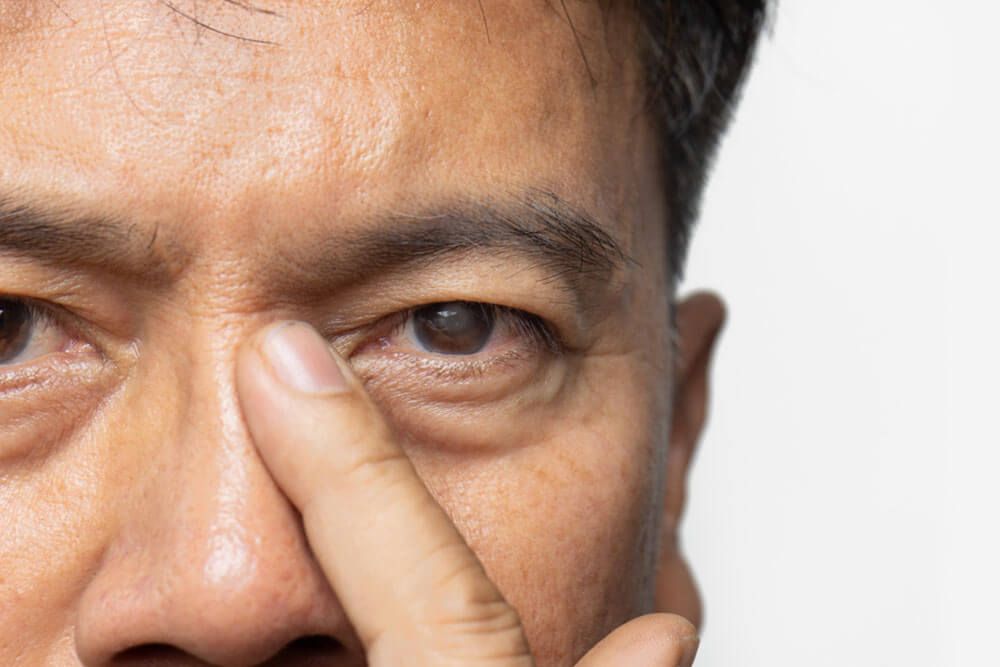Cataracts are a common eye condition, especially as we age, leading to clouded vision and, if left untreated, potentially causing significant visual impairment. At Colorado Eye Clinic in Denver, we are committed to providing the best care for patients experiencing cataracts, offering advanced treatments to restore clear vision and improve the quality of life.
What Are Cataracts?
A cataract is a clouding of the eye’s natural lens, which lies behind the iris and the pupil. This condition is most often related to aging and is prevalent in older adults. However, cataracts can also result from other factors, such as injury, certain medications, or health conditions like diabetes. When a cataract forms, the lens becomes opaque, blocking light from passing through clearly, which results in blurred or dim vision.
Symptoms of Cataracts
Cataracts develop slowly, and initially, you might not notice any changes in your vision. As the cataract progresses, you may experience the following symptoms:
- Blurry Vision: Objects may appear out of focus or hazy, as if looking through a fogged-up window.
- Faded Colors: Colors may seem less vibrant or dull.
- Glare and Halos: Bright lights may appear too bright, and halos may form around them, making it difficult to drive at night.
- Double Vision: You might see two images instead of one, especially in the affected eye.
- Frequent Prescription Changes: You may find yourself needing frequent updates to your eyeglass or contact lens prescription as your vision deteriorates.
If you notice any of these symptoms, it’s essential to consult with an eye care professional. Early detection and monitoring can help manage cataracts effectively and prevent severe vision loss.
Cataract Surgery: A Proven Solution
Cataract surgery is one of the most common and effective surgical procedures performed worldwide. At Colorado Eye Clinic, we specialize in advanced cataract surgery, helping patients regain clear vision with minimal downtime.
What Is Cataract Surgery?
Cataract surgery involves removing the clouded natural lens and replacing it with an artificial intraocular lens (IOL). The procedure is typically performed on an outpatient basis, meaning you can go home the same day. Here’s what to expect:
1. Pre-Surgery Preparation
Before the surgery, your ophthalmologist will measure your eye to determine the correct lens implant for you. You may be instructed to use eye drops and avoid eating or drinking for a few hours before the procedure.
2. The Procedure
Cataract surgery is usually done under local anesthesia, so you will be awake but feel no pain. The surgeon makes a tiny incision in the eye and uses a probe that emits ultrasound waves to break up the cloudy lens. The fragments are then gently suctioned out. Afterward, the artificial lens is inserted through the same incision.
3. Post-Surgery Care
After the surgery, you may need to wear an eye patch or shield for a short period. You will also be given eye drops to prevent infection and reduce inflammation. Most patients experience improved vision within a few days, although full recovery can take up to eight weeks.
Benefits of Cataract Surgery
Cataract surgery is highly successful, with the majority of patients experiencing significantly improved vision. Benefits include:
- Restored Clarity: Most patients regain clear vision, allowing them to resume activities they may have struggled with before, such as reading and driving.
- Enhanced Quality of Life: Improved vision can greatly enhance your quality of life, making daily tasks easier and more enjoyable.
- Minimal Downtime: With advancements in surgical techniques, recovery times are shorter, and patients can often return to their normal activities within a few days.
Secondary Cataract: What You Need to Know
While cataract surgery is highly effective, some patients may develop a condition known as a secondary cataract or posterior capsule opacification (PCO). This occurs when the back of the lens capsule, which holds the IOL in place, becomes cloudy over time, similar to a cataract.
Symptoms of Secondary Cataract
The symptoms of a secondary cataract are similar to those of a primary cataract and may include:
- Blurred or hazy vision
- Glare and halos around lights
- Difficulty reading or driving, especially at night
Secondary cataracts can occur months or even years after the initial cataract surgery. Fortunately, this condition is treatable with a quick and painless laser procedure known as YAG laser capsulotomy.
YAG Laser Capsulotomy: Restoring Clear Vision
YAG laser capsulotomy is a non-invasive procedure used to treat secondary cataracts. It is typically performed in the ophthalmologist’s office and takes only a few minutes.
How YAG Laser Capsulotomy Works
1. Preparation: Your eye will be dilated using eye drops, and you may receive an anesthetic drop to numb the surface of your eye.
2. The Procedure: The ophthalmologist uses a specialized laser to create a small opening in the cloudy lens capsule, allowing light to pass through and restoring clear vision. You may hear a clicking sound as the laser is applied, but you will not feel any pain.
3. Post-Procedure Care: Most patients notice an improvement in vision almost immediately after the procedure. You may be prescribed eye drops to prevent inflammation, and your eye will be monitored for a short period to ensure there are no complications.
Benefits of YAG Laser Capsulotomy
- Quick and Painless: The procedure is brief and requires no incisions, making it a convenient option for patients.
- Immediate Results: Most patients experience a rapid improvement in vision, often within hours of the procedure.
- Low Risk: YAG laser capsulotomy has a low risk of complications, making it a safe choice for treating secondary cataracts.
Trust Colorado Eye Clinic for Your Cataract Care
At Colorado Eye Clinic, we are dedicated to providing comprehensive care for cataracts and other eye conditions. Dr. Abed Namavari, a board-certified ophthalmologist with extensive experience in cataract surgery and laser treatments, leads our team. We are committed to helping you maintain clear vision and improve your quality of life.
If you are experiencing symptoms of cataracts or have concerns about your eye health, don’t hesitate to reach out. Colorado Eye Clinic is conveniently located at 6021 S Syracuse Way, Suite 102, Greenwood Village, Colorado, 80111. Call us today at 720-667-3852 to schedule your appointment. Let us help you see the world more clearly.

